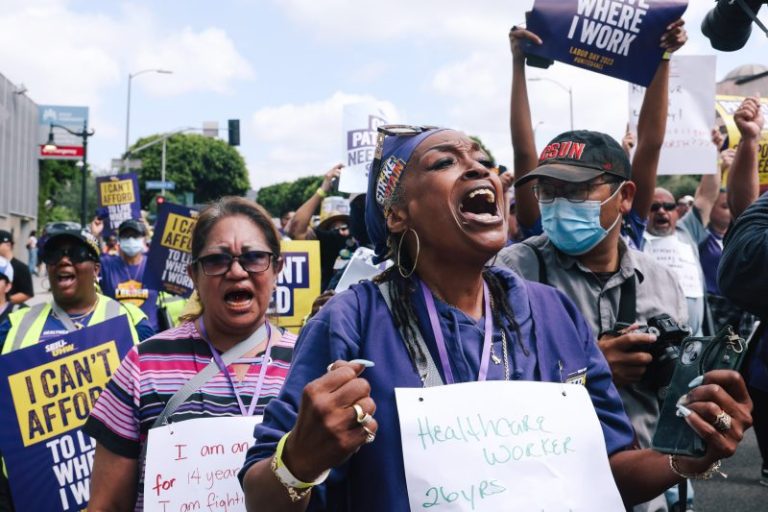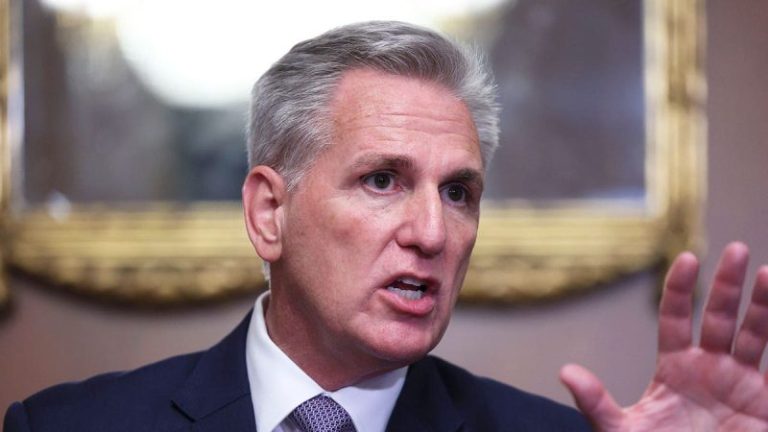Two of Sam Bankman-Fried’s former friends from MIT, who also worked at crypto exchange FTX while living with the company co-founder in the Bahamas, took the stand in a Manhattan courtroom this week to testify against their former classmate, confidant, and boss — a man who allegedly ran a crypto empire that defrauded thousands of customers out of billions of dollars.
Gary Wang, the lesser-known co-founder of FTX, was asked by Assistant U.S. Attorney Nicolas Roos on Thursday, “Did you commit financial crimes while working at FTX?”
“Yes,” responded Wang. He said that his crimes, including wire and commodities fraud, were carried out with the help of Bankman-Fried, FTX ex-engineering head Nishad Singh and Caroline Ellison, who ran sister hedge fund Alameda Research and had been Bankman-Fried’s girlfriend.
“Mr. Wang, do you see any of the people you committed those crimes with in the courtroom today?” Roos continued.
Wang, dressed in an oversized and wrinkled suit with a red tie and glasses, awkwardly stood up and looked around the courtroom before responding, “Yes.”
“Who do you see?” asked Roos.
“Sam Bankman-Fried,” he said.
The trial, set to last six weeks, will resume on Tuesday with key testimony expected from Ellison, who is considered the prosecution’s star witness, having already pleaded guilty to multiple charges. Bankman-Fried faces seven federal charges, including wire fraud, securities fraud and money laundering, that could put him in prison for the rest of his life.
Thus far, Bankman-Fried, 31, has remained mostly quiet in court intently listening to witnesses and at times writing notes to his attorneys. But as Wang testified against him, Bankman-Fried looked visibly upset, shifting his gaze from his former friend to the ground, and at one point putting his head in his hands.
Wang, 30, was technology chief for FTX, which spiraled into bankruptcy in November. He spoke so fast that U.S. District Judge Lewis Kaplan and the prosecutor both stopped him at points to ask that he slow his pace.
Much of Wang’s testimony on Friday focused on the final days at FTX before the entire operation imploded, including reports in the media detailing Alameda’s business practices and its troubling ties to FTX.
Wang said that in response to the reporting an emergency meeting was called between Bankman-Fried, Wang and Singh, to discuss shutting down Alameda. He said they ultimately decided against such a move because he and Bankman-Fried were aware that Alameda had no way to repay the roughly $14 billion hole in its books.
Prosecutors took the jury through a series of tweets, beginning on Nov. 7. Posts came from the company blaming bank hours for slow withdrawals, while Bankman-Fried tweeted from his personal account, assuring customers that all was fine.
“FTX was not fine and assets were not fine,” Wang testified.
On Nov. 12, after FTX declared bankruptcy, Bankman-Fried asked Wang to drive with him to the Bahamas Securities Commission for a meeting. On the drive, Bankman-Fried told Wang to transfer assets to Bahamian liquidators because he believed they would allow him to maintain control of the company. Wang said he wasn’t in the meeting with the securities authority, though Bankman-Fried’s dad was present.
Wang said he returned to the U.S. and met with prosecutors the next day. He faces up to 50 years in prison when he faces a judge for sentencing following this trial. He told jurors he signed a six-page cooperation agreement that requires him to meet with prosecutors, answer their questions truthfully and turn over evidence.
$65 billion line of credit
For months, Bankman-Fried has known that Wang and Ellison, who were integral members of his personal and professional inner circles, had turned on him. Both pleaded guilty in December and have since been cooperating with the U.S. attorney’s office in Manhattan.
Wang’s testimony, which stretched into Friday, was given under a cooperation agreement with the government. Ellison is expected to take the stand under a similar arrangement.
Born in China, Wang moved to the U.S. at age 7 and grew up in Minnesota before going to the Massachusetts Institute of Technology to study math and computer science. He worked at Google after college.
Wang, who first met Bankman-Fried during high school at a summer camp, owned 10% of Alameda, while his boss owned the other 90%. Wang told the court about the advantages that Alameda received by having code baked into FTX’s software that allowed special access to the crypto exchange. Those privileges ultimately resulted in Alameda owing FTX $8 billion worth of customer deposits.
“We gave special privileges on FTX that gave unlimited withdrawals on the platform to Alameda,” Wang said. Alameda was allowed to withdraw and transfer those funds and had a $65 billion line of credit.
“When customers deposited USD, it went to Alameda,” he said. “It existed in the computer code. Alameda could have negative balances and unlimited withdrawals.”
That “bug” in the code was written by Nishad Singh, who was FTX’s director of engineering, and reviewed by Wang. Bankman-Fried was calling the shots, Wang said.
Wang also told the court about a $1 million personal loan he received and a $200 million to $300 million loan in his name from Alameda that was never deposited into his account, but rather was used to make investments into other companies on behalf of FTX. That was all done by Bankman-Fried, he testified.
In early 2020, Wang said he discovered for the first time Alameda’s negative balance exceeded FTX’s revenue, an indication that Alameda was taking customer funds. Wang said he brought this to Bankman-Fried’s attention several times.
In late 2021, Wang discovered Alameda had withdrawn $3 billion from its $65 billion line of credit.
Wang’s compensation was a base salary of $200,000 per year plus stock. He owned roughly 17% of FTX.
Even though they were co-founders, “ultimately it was Sam’s decision to make” when there were disagreements, he said.
An $8 billion bug
Adam Yedidia, who was the prosecution’s second witness on Wednesday, continued his testimony on Thursday. Yedidia met Bankman-Fried in college at MIT, and the pair remained close friends.
Yedidia, assuming a robotic posture on the stand, worked out of FTX’s Hong Kong office from January to October of 2021 and then in the Bahamas until last year’s collapse. In his testimony, he referred to a group Signal thread called “People of the House,” referring to Bankman-Fried’s $35 million penthouse, where many employees lived.
In terms of who was paying the rent, Yedidia recalled Bankman-Fried saying he “assumed it’s just Alameda paying for it in the end.”
Yedidia said Bankman-Fried had told him before he began working in the Bahamas in 2019 that he and Ellison had sex. Bankman-Fried asked Yedidia if it was a good idea for them to date, to which Yedidia said no. Bankman-Fried responded by saying he was expecting that answer.
One of Yedidia’s responsibilities was fixing the bug in the code that gave Alameda preferential treatment. In June 2022, he submitted a report to Bankman-Fried on Signal that showed $8 billion in customer money held in an internal database tracking the cash wired to an Alameda account called “fiat at ftx.com” was missing.
Yedidia said he and Bankman-Fried spoke about it at the pickleball court at the resort in Nassau, Bahamas. He asked his boss if things were OK. He was concerned because it “seemed like a lot of money” from FTX customers was at risk.
“Sam said, we were bulletproof last year. We aren’t bulletproof this year,” Yedidia testified.
Yedidia said he asked when they would be bulletproof again.
Bankman-Fried said he wasn’t sure, but it may be six months to three years. Yedidia said Bankman-Fried appeared “worried or nervous,” which he said was atypical. Still, Yedidia said he trusted Bankman-Fried and Ellison to “handle the situation.”
On cross-examination, Christian Everdell, Bankman-Fried’s attorney, focused on how Yedidia was the one responsible for developing and reviewing the code.
More from CNBC
Even as job creation surges, Americans still think the economy stinks. Here’s why UAW Mack Trucks deal could be a test for worker demands amid Detroit automaker negotiations The big AI and robotics concept that has attracted both Walmart and Softbank
He asked about the long hours employees worked and Yedidia’s concern for Wang being near burnout. That resulted in Yedidia instituting a rule to not wake Wang at night for bug fixes because he needed sleep.
Everdell also drilled Yedidia on his high level of compensation in his less than two years at FTX. His base salary was between $175,000 and $200,000, but he received multiple bonuses of more than $12 million in cash and company equity.
Yedidia said he’s now teaching math — geometry and algebra — at a high school. He invested most of the millions he earned as bonuses back into FTX, and his equity stake is now worthless.
As FTX was failing, Yedidia said he was by Bankman-Fried’s side. He highlighted a Signal exchange in November 2022, during which he wrote, “I love you Sam. I’m not going anywhere.” He said he wrote the message because so many people had left.
When asked what changed, Yedidia said he learned that FTX customer deposits had been used to pay loans to creditors. He said Alameda’s actions seemed “flagrantly wrong.”
Yedidia’s testimony ended on a fiery note, which was later struck from the record. He was asked why he had lost faith in FTX and resigned.
“FTX defrauded all its customers,” he said.
Investment to zero
The third witness to take the stand was Matt Huang, co-founder and managing partner of Paradigm, a crypto venture capital firm that invested over $275 million in FTX. That stake was wiped out.
Huang testified about his firm’s due diligence on FTX, and he told the court that Bankman-Fried assured him that funds would be used for FTX and not Alameda. Additionally, he was promised that Alameda had no preferential treatment on the FTX platform, even though the hedge fund was one of its top traders.
Huang said he was concerned about FTX’s lack of a board of directors, but he eventually invested anyway. During cross-examination, Huang said Paradigm pressed Bankman-Fried on the board issue and was told he didn’t want investors as directors but he did plan on having a board with experts.
CORRECTION (Oct. 8, 2023, 6:45 p.m. ET): A previous version of this article and a video caption misstated Sam Bankman-Fried’s role with FTX. He is one of two co-founders, not the sole founder.
This post appeared first on NBC NEWS










